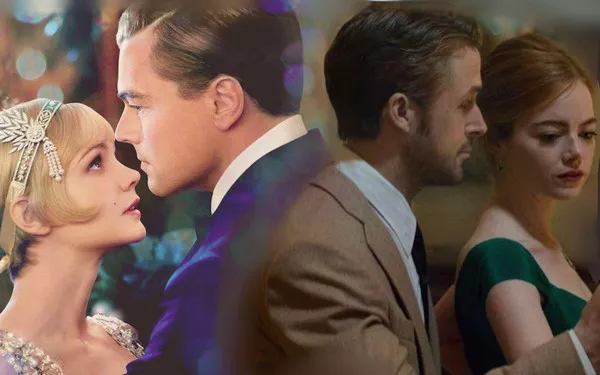Love is a complex and profound emotion that has captivated human beings for centuries. While it brings immense joy and fulfillment, it also has a tendency to lead us down unexpected paths, often causing us to fall in love with the wrong person. The psychology behind this phenomenon is intricate, intertwining various cognitive, emotional, and social factors that contribute to our choices in romantic relationships. By delving into the underlying mechanisms, we can gain a deeper understanding of why we sometimes find ourselves entangled in relationships that may not be in our best interest.
The Magnetic Pull of Familiarity
One of the intriguing aspects of love is its propensity to draw us towards the familiar. Psychologically, we are more likely to feel attracted to individuals who exhibit traits and behaviors reminiscent of figures from our past, particularly our parents or primary caregivers. This phenomenon, known as “repetition compulsion,” can lead us to unconsciously seek out partners who mirror the dynamics we experienced during our formative years. This inclination towards the familiar can cause us to overlook potential red flags, as the sense of comfort and security associated with these patterns can often overshadow rational judgment.
Emotional Baggage and Self-Worth
Another psychological factor that contributes to falling for the wrong person is our own emotional baggage and self-worth. If we harbor feelings of inadequacy or have unresolved traumas, we may gravitate towards individuals who inadvertently reinforce these negative beliefs. We might mistakenly believe that their affection can heal our wounds and validate our self-worth. This intertwining of our emotional vulnerabilities with the concept of love can cloud our judgment and lead us to invest in relationships that are ultimately detrimental.
The Allure of the Unavailable
The human psyche often holds a fascination for the unattainable. This is particularly evident when it comes to relationships. People who are emotionally distant or unavailable can trigger a heightened desire within us. The challenge of winning their affection can create a sense of accomplishment that we equate with love. This phenomenon, referred to as the “scarcity principle,” can blind us to the fact that a healthy relationship should be built on mutual respect, open communication, and emotional availability.
Mismatched Attachment Styles
Love is intimately connected to our attachment styles, which develop in early childhood and influence how we relate to others in romantic relationships. Individuals with differing attachment styles can be drawn to each other in what appears to be a magnetic attraction. For instance, someone with an anxious attachment style, characterized by a fear of abandonment, might be inexplicably drawn to a partner with an avoidant attachment style, who tends to shy away from emotional intimacy. This mismatch can lead to a push-and-pull dynamic, as each partner’s insecurities trigger the other’s defenses, often resulting in an unhealthy cycle of love and conflict.
Chemistry vs. Compatibility
One of the most perplexing aspects of love is the interplay between chemistry and compatibility. While initial chemistry can be a powerful force, it doesn’t necessarily guarantee a harmonious, lasting relationship. The intense rush of emotions that accompanies strong chemistry can cloud our judgment and make us overlook fundamental compatibility issues. The infatuation that arises from chemistry might lead us to ignore differences in values, life goals, and communication styles, ultimately steering us towards relationships that are exciting in the short term but unsustainable in the long run.
Social and Cultural Influences
The society and culture we inhabit also exert a significant influence on our choices in romantic partners. Societal norms, media portrayals of love, and familial expectations can all play a role in shaping our preferences and perceptions. We might find ourselves drawn to individuals who fit the mold of an ideal partner as dictated by our surroundings, even if those partners are not truly compatible with us. The pressure to conform to external standards of love can lead us astray, causing us to prioritize appearances over genuine emotional connections.
The Hope for Change
A common theme in falling for the wrong person is the belief that we can change them. We may be captivated by the idea of rescuing someone from their flaws or convincing them to become the person we envision. This hope for change can blind us to the reality that people can only truly transform if they are motivated to do so for themselves. Love alone is often insufficient to inspire lasting change, and investing our emotions in the expectation of altering someone’s fundamental nature can lead to disappointment and heartache.
Conclusion
In the intricate landscape of human psychology, the phenomenon of falling for the wrong person remains a paradoxical yet deeply human experience. The various factors discussed – the pull of familiarity, emotional baggage, attraction to the unavailable, attachment styles, chemistry vs. compatibility, social influences, and the hope for change – all contribute to the complexity of our choices in romantic relationships. Understanding the underlying psychology behind these choices can empower us to make more informed decisions, fostering relationships that are truly nourishing and aligned with our well-being. As we continue to explore the depths of love and its many facets, we navigate the delicate balance between the heart’s desires and the mind’s wisdom.
Related topics:




























